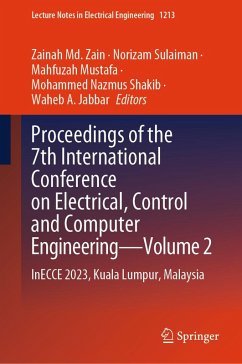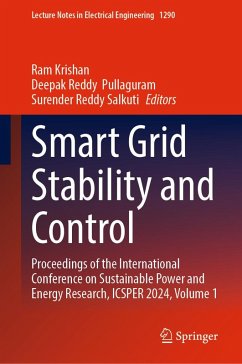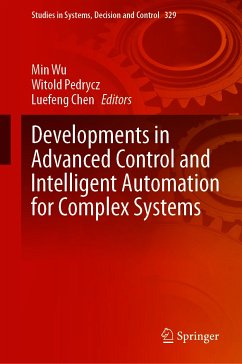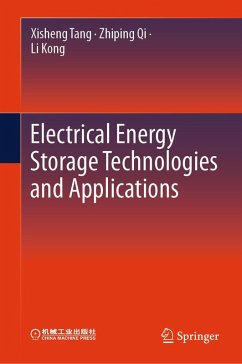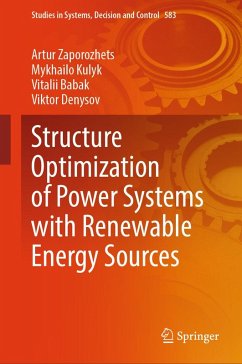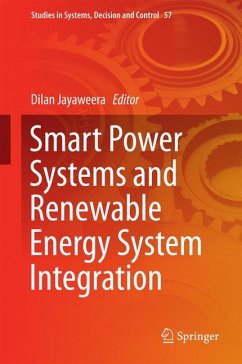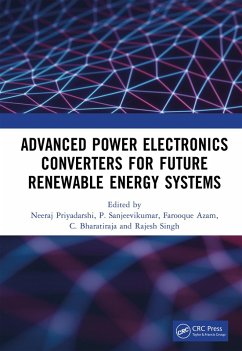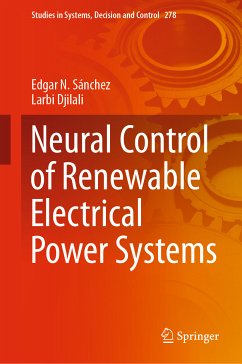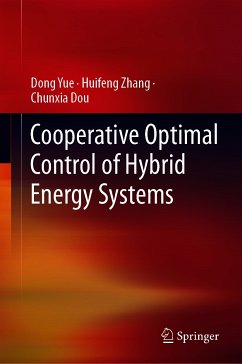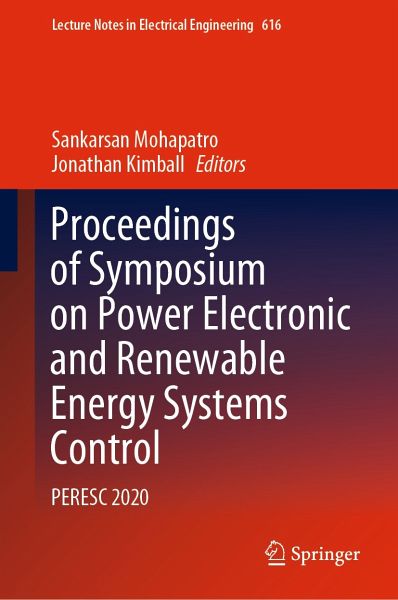
Proceedings of Symposium on Power Electronic and Renewable Energy Systems Control (eBook, PDF)
PERESC 2020
Redaktion: Mohapatro, Sankarsan; Kimball, Jonathan
Versandkostenfrei!
Sofort per Download lieferbar
216,95 €
inkl. MwSt.
Weitere Ausgaben:

PAYBACK Punkte
108 °P sammeln!
This book includes high-quality research papers presented at Symposium on Power Electronic and Renewable Energy Systems Control (PERESC 2020), which is held at the School of Electrical Sciences, IIT Bhubaneswar, Odisha, India, during 4-5 December 2020. The book covers original work in power electronics which has greatly enabled integration of renewable and distributed energy systems, control of electric machine drives, high voltage system control and operation. The book is highly useful for academicians, engineers, researchers and students to be familiar with the latest state of the art in pow...
This book includes high-quality research papers presented at Symposium on Power Electronic and Renewable Energy Systems Control (PERESC 2020), which is held at the School of Electrical Sciences, IIT Bhubaneswar, Odisha, India, during 4-5 December 2020. The book covers original work in power electronics which has greatly enabled integration of renewable and distributed energy systems, control of electric machine drives, high voltage system control and operation. The book is highly useful for academicians, engineers, researchers and students to be familiar with the latest state of the art in power electronics technology and its applications.
Dieser Download kann aus rechtlichen Gründen nur mit Rechnungsadresse in A, B, BG, CY, CZ, D, DK, EW, E, FIN, F, GR, HR, H, IRL, I, LT, L, LR, M, NL, PL, P, R, S, SLO, SK ausgeliefert werden.



